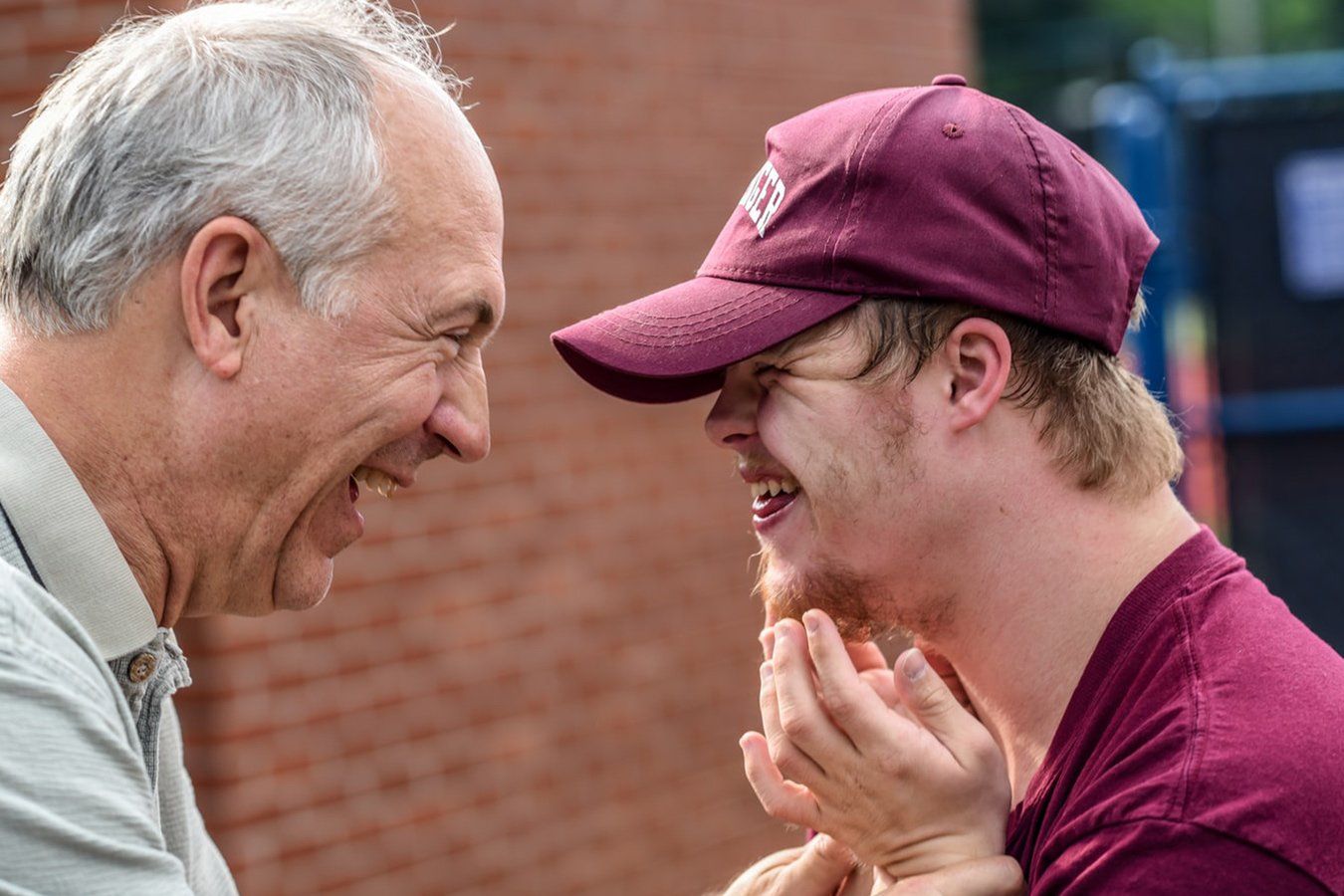Adult Speech - Language Pathology Services
Communication and Swallowing
Speech-language pathology services help children or adults with communication or feeding difficulties. A Speech-Language Pathologist (SLP) is trained to identify, assess, and treat communication and swallowing disorders. This can include difficulty producing certain sounds (articulation), understanding and using words (language), participating in conversations appropriately (social language), organizing information and thinking (cognition,) and feeding and swallowing.
Adults may experience speech and language difficulties for a variety of reasons. People who have suffered a stroke, brain injury or have a diagnosis of dementia or degenerative diseases such as ALS, Multiple Sclerosis, Parkinson’s or Alzheimer’s can often benefit from therapy with an SLP.
The process starts with an initial screening and consultation, followed by an assessment and therapy treatment plan, if appropriate. We deliver timely, professional care that includes expert consultation, advice and treatment.
As we work with individuals who have been involved in motor vehicle accidents, we are registered with FSCO
for billing through the Health Claims for Auto Insurance (HCAI)
system. We also offer a variety of services on behalf of Veterans Affairs Canada.
The various elements of speech-language pathology and the services provided by an SLP are outlined below.
Rehabilitation Services
Stroke and Acquired Brain Injury
A stroke or brain injury can cause a change in normal brain function that results from a disruption of the blood circulation in the brain due to either a blockage or bleed. Strokes and brain injuries may cause permanent or temporary damage depending on what part of the brain has been affected. If the damage occurs on the left side of the brain, language is typically affected and can lead to aphasia. If the damage occurs on the right side of the brain, cognition and memory are typically affected. Changes in how the brain communicates with the parts of the body that work to create speech sounds, such as the lips, tongue and even the respiratory system, may result in motor speech disorders called dysarthria and apraxia.
Learn more about Motor Disorders including dysarthria and apraxia, Aphasia and Cognition and Memory
on our blog.
At Creative Therapy Associates, our compassionate Speech-Language Pathologists are trained and experienced to assess and provide individualized therapy to allow you to regain or learn new communication skills, address cognitive abilities, gain independence and have a better quality of life.
Dysphagia
Difficulty with swallowing is called dysphagia and can be caused by a variety of reasons including degenerative diseases, such as ALS and dementia, or injury. A Speech-Language Pathologist is trained to assess individuals with dysphagia and make recommendations for safe feeding, including food textures and body position during and after eating. Learn more about dysphagia
on our blog.
If you are concerned that you or a loved one may have dysphagia, see your healthcare practitioner or contact our clinic for more information.
Voice Disorders
A voice disorder is a problem with pitch, volume, tone, and other voice qualities and can happen when the vocal cords don’t vibrate normally. For most of us, our voices play a big part in who we are, what we do, and how we communicate. Many things can injure our vocal cords, such as too much talking, screaming, constant throat clearing, or smoking. This can also lead to problems such as nodules, polyps, and sores on the vocal cords. Other causes of voice disorders include infections, reflux, growths due to a virus, cancer, and diseases that paralyze the vocal cords.
Our clinicians are trained to identify the causes of the voice disorder and to assess the effect it is having on your quality of life. Using that information, we work with you to develop a treatment plan and goals that may include exercises, education, and strategies.










